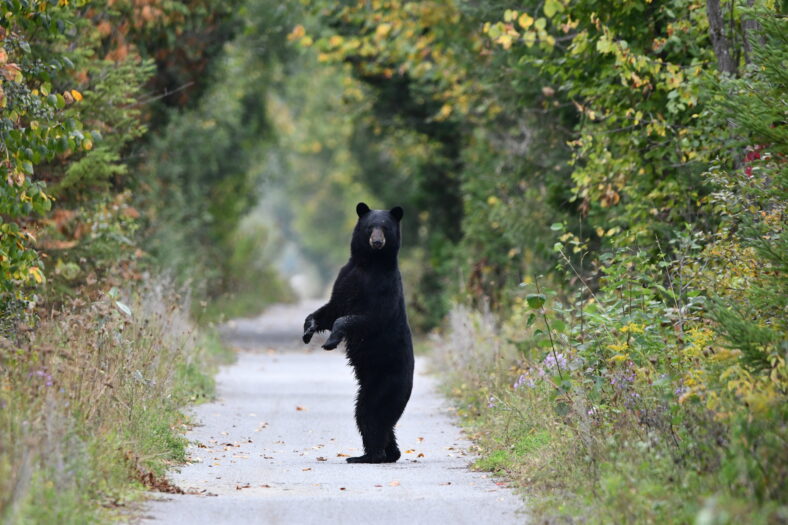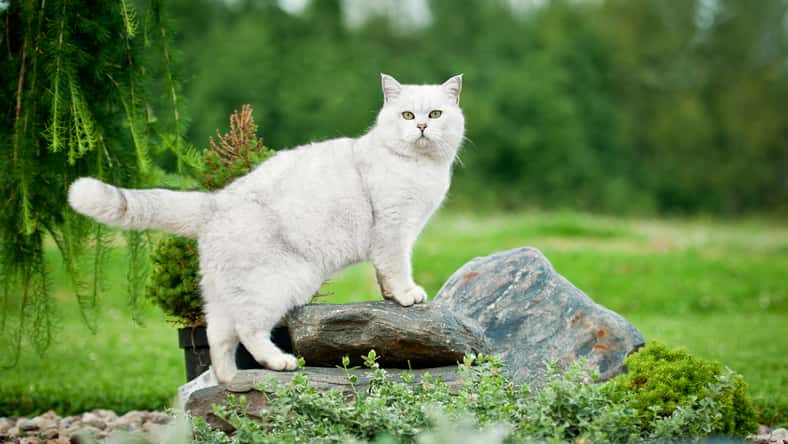
In Michigan’s Lower Peninsula, black bears are expanding their territory. State officials say that residents should not leave food in their yards because this will attract the bears.
Over the past two decades, the bears have been venturing farther south and west, including into the Traverse City, Grand Rapids, and Midland areas, according to the Michigan Department of Natural Resources (DNR). It is estimated that 2,000 bears now live in Lower Michigan.
During the past 20 years, the DNR has received about 285 bear complaints per year, including 303 in 2024. The most complaints came from the counties of Marquette (41), Houghton (29), Otsego (26), Chippewa (25), Delta (24), Charlevoix (19), Leelanau (16), and Grand Traverse (13).
About half of the calls came from people who saw a bear in their yard and wanted the animal to be removed. But state officials say that a bear simply passing through does not always require action to be taken. According to Jared Duquette, a DNR wildlife biologist, black bears are very important for the Michigan ecosystem.
“Bears eat a variety of fruits, berries, and nuts, making them terrific seed dispersers,” said Duquette. “Their droppings help spread seeds across large areas, promoting plant growth and forest regeneration.”
“As opportunistic omnivores, bears help control populations of small mammals and insects. They also scavenge on carrion, which helps recycle nutrients back into the ecosystem.”
Bears are not likely to hang around someone’s yard for an extended period of time unless they find a meal for themselves.
To keep the bears moving along, the DNR recommends limiting or eliminating access to bird feed altogether. The hungry animals can smell it from a mile away and will remember where it is year after year.
In addition, other possible food sources should be kept secure, such as garbage cans or a food-splattered grill. If a bear has already gotten into some trash or birdseed, residents should remove the food source and give the bear at least two weeks before it stops returning to the property.

Sign up for Chip Chick’s newsletter and get stories like this delivered to your inbox.
Other options include replacing bird feeders with birdbaths, locking trash in a garage or shed, using bear-resistant trash cans, and blocking off access to beehives with an electric fence.
Feeding wild bears is dangerous because the bears will keep coming back to human-populated places and risk getting shot by residents or euthanized by animal control officers. The DNR can help remove a bear from a property by spooking it with rubber buckshot or pyrotechnics.
If a bear becomes problematic or a public safety threat, the state can trap and relocate it. A captured bear can be relocated to somewhere in northern Michigan, but the habitats there are becoming scarcer due to land development.
The black bear is the only species of bear found in the Michigan wilderness. If you do happen to encounter a black bear, stand your ground and make yourself look bigger by raising your arms and standing on a rock or stump.
You can also yell loudly at the bear. Only back away if the bear approaches you and provide a clear escape route for the bear. Fight back by hitting, kicking, and using any available objects if the bear makes contact.












